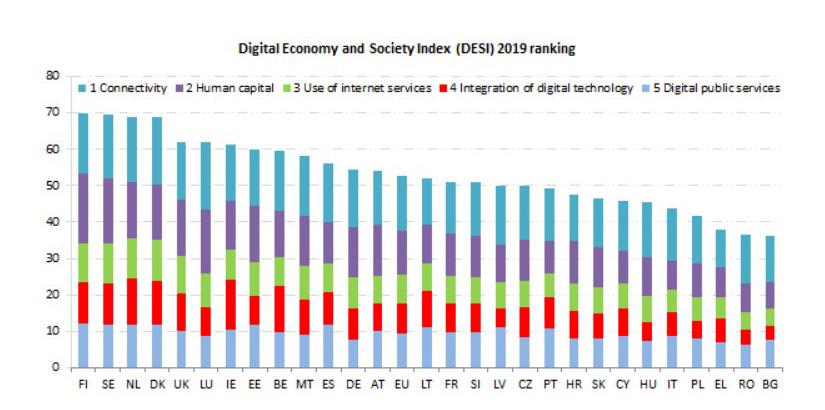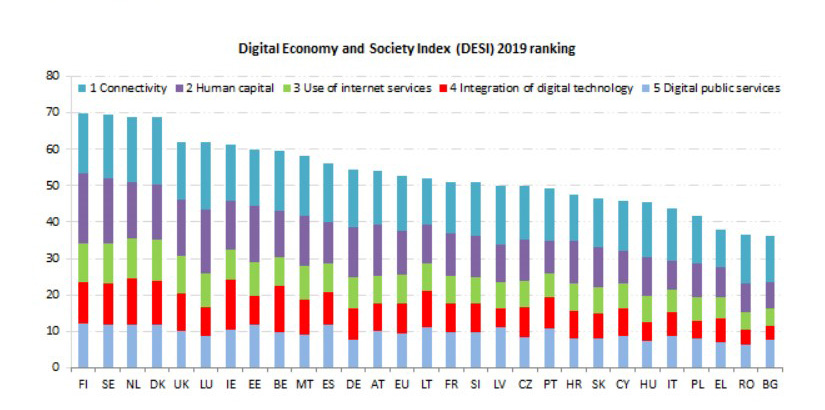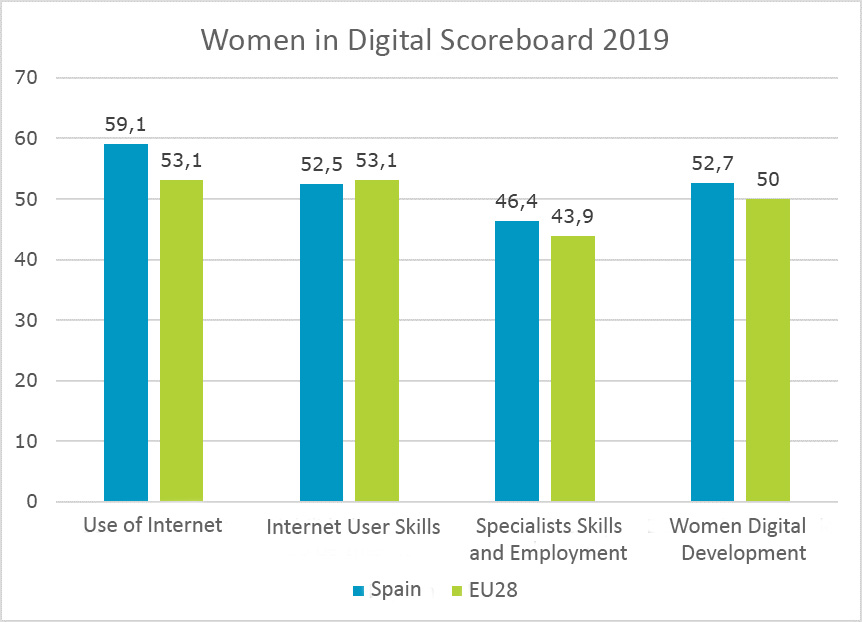
Once again the European Commission has published the results of the Digital Economy and Society Index, which shows the degree of competitiveness of the Member States in the Digital Economy and Society.
This year, Spain occupies the eleventh position, with a score of 56.1, improving last year mark (53.2). This figure places our country above the EU average (52.5).

This score is obtained through the analysis of 36 indicators, such as open data, aggregated into five dimensions: Connectivity, Human Capital, Use of Internet Services, Integration of Digital Technology and Digital Public Services.
Spain's position in the DESI index
Below are the results of Spain in each of these categories:
- Digital Public Services: This is the category where our country has improved the most, going from the 6th to the 4th position. One of the indicators that drives Spain's position in this dimension is open data: our country occupies second place in maturity in Europe, as it did last year. This dimension is also influenced by the high level of electronic interaction between public administrations and citizens, well above the European Union average.
- Connectivity: Spain shifts from the 10th to the 9th position in "connectivity" due to its good preparation for 5G networks and the coverage of ultra-fast broadband networks.
- Integration of Digital Technology: It is the only category in which Spain loses one position this year, going from 9th place to 10th place. Even so, the data is positive, especially in the indicators related to the electronic data sharing and the use of social networks by companies.
- Use of Internet Services: Spain remains in the 11th position, without variation compared to last year. In this category, Spain shows values similar to the European Union average, with 83% of citizens regularly using the Internet. The positive fact of this year is that the proportion of people who have never used the Internet (13%) has fallen, although it still exceeds the European average (11%).
- Human Capital: Spain's position in this dimension, which has not changed compared to last year, is conditioned by two indicators that are below the European average: the percentage of ICT specialists and the percentage of women specialists.
Women in Digital Scoreboard 2019
In order to deepen the digital development of women in each of the Member States, the European Commission has also published a new edition of the indicator "Women in Digital Scoreboard 2019".
According to this indicator, Spain has a medium-high level of digital development of women, with a score above the EU average (52.7 versus 50.0). Specifically, Spain is in the 9th position.
In this case there are 13 sub-indicators analyzed, which are grouped into three dimensions: Use of Internet, Internet User skills, and Specialists Skills and Employment.

In short, Spain continues to be well positioned in terms of digital performance. There is still work to be done, but good positioning in some strategic activities, such as open data, boosts Spain's position in the European global index.
Muy interesante los datos de conectividad y servicios públicos digitales en la que España está haciendo un gran esfuerzo para igual o más bien superar los estándares europeos. Las gestorías y asesorías deben también adaptarse a estos servicios con el fin de crear un ecosistema de comunicación entre empresas y las administraciones